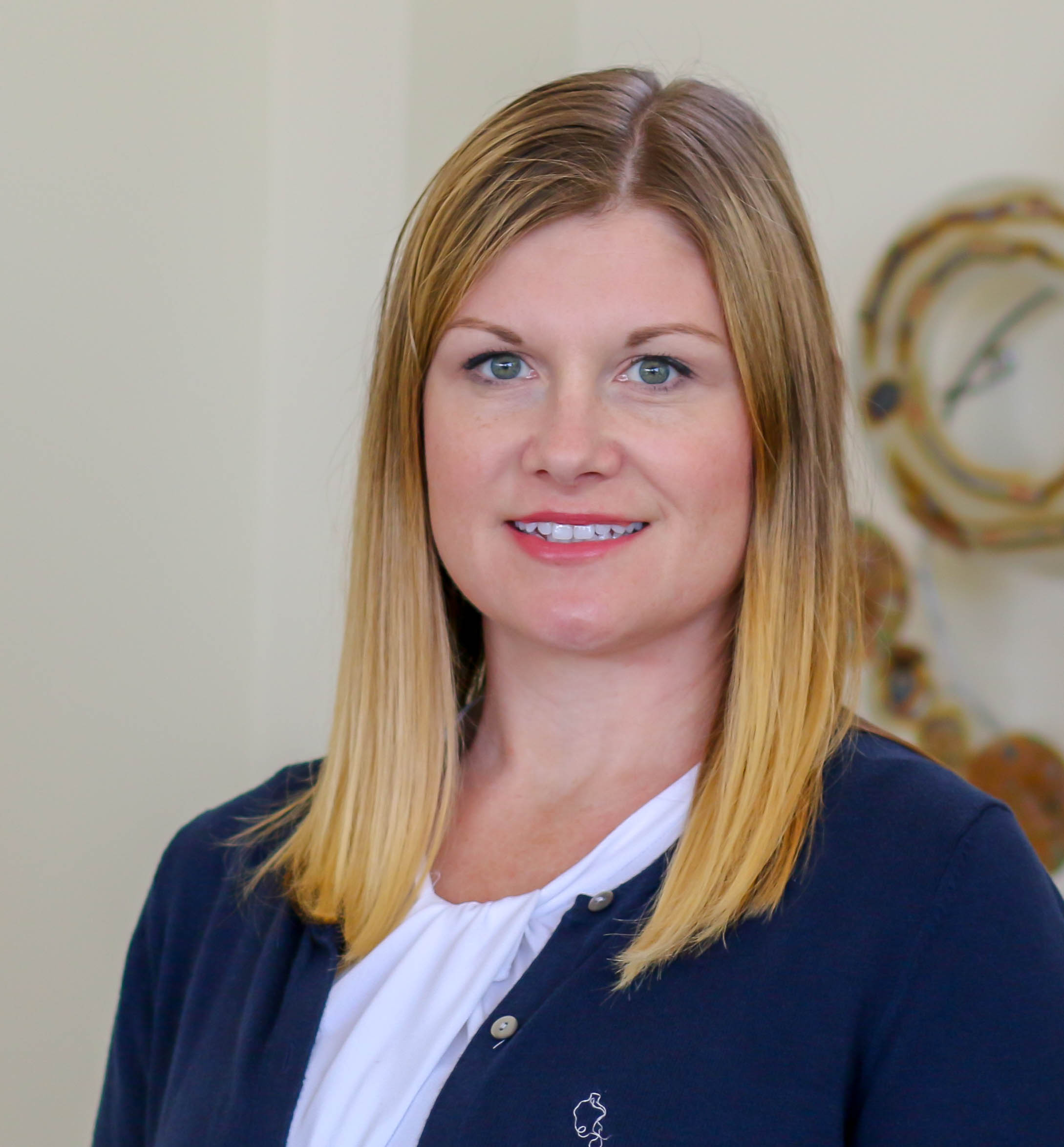Exercise and Mental Health
Visiting Primary Care
Frontiers of Mental Health
People Profile: Danielle Kollasch, PA-C
Exercise and Mental Health

Imagine there was a non-medicinal way to treat mental illness.
A lofty goal, but also not outside the realm of possibility. Doctors and scientists have known for quite some time that the positive effects exercise has on the brain can alleviate depression, anxiety, and several other disorders. Regular exercise lifts mood, boosts energy, lowers stress and contributes to a healthy cardiovascular system. It makes you feel better about how you look, and overall balances a healthy self-image with a realistic cognitive one. Pretty great, right?
There’s only one problem: You must exercise for it to work.
That may seem like a small drawback, but for a large percentage of Americans, exercise isn’t even something on their radar. The CDC says 80 percent of Americans don’t get the recommended amount of exercise. Is the recommendation ridiculous? Does it involve hours and hours on treadmills or pounding weights? Not really. The official government recommendation is 2.5 hours of moderate-intensity anaerobic exercise a week for adults. If that seems like too much, you can do an hour and fifteen minutes of higher-intensity activity, or lifting heavy weights. You can also intermix the two. The CDC also recommends doing bodyweight exercises like pushups or squats at least twice per week. Aside from the beneficial heart impacts of these movements, bodyweight work that challenges you is also useful for maintaining crucial strength and pliability in the shoulders and knees, joints known for wearing out over the years.
Physical exercise shouldn’t be misconstrued as an immediate fountain of youth. There are many people unable to complete even these simplest of movements due to injuries of the knee, or back, shoulder, etc. Some might have a heart condition or asthma that precludes the kind of strenuous body work the CDC might recommend. In those cases, exercise is probably not worth the potential drawbacks.
But for everyone else, it has continued benefits.
The hippocampus responds strongest to exercise. Numerous studies have revealed that as you become more fit, the size of this brain region increases. As this area is the core of the brain’s learning and memory systems, cognition is improved. Simply put, cardiovascular exercise can boost your ability to remember and learn new things. Some have said it makes you “smarter”, but we won’t go quite that far. We’ll simply say that it helps you achieve the Next Level brain function that we strive for, and facilitates your body’s abilities to its best potential. You could say we’re sold on it already.
But, just like a late-night informercial, there’s more! According to the Mayo Clinic and numerous other sources, exercise can ease the symptoms of clinical depression through the release of positive endorphins. Exercise also releases brain-derived neurotropic factor (BDNF), a chemical only available by being manufactured in the brain and is involved in the memory circuits of the brain. You can’t find this essential chemical in pill form. Exercise can also help you gain confidence, get more beneficial social interactions, and learn to cope better with anxiety. For those with social anxieties, exercise is a low-impact, low-cost way to improve how they want.
At Alivation, we recommend the CDC’s levels of physical exercise. The body and mind are integrated so tightly that working out one seems to work out the other. The best way to keep your mind strong is to work out your body.
It doesn’t take fancy gym memberships or personal trainers or a strict starvation diet to achieve the kind of effects listed here. But it does take commitment. The cliché is to say nothing worth having comes easily. It’s repeated here to reinforce the idea that we often know what it takes to improve ourselves, but we’re reluctant to do it because it isn’t as easy as we should like. The ubiquity of the internet has made it possible to research exercising and positive body movements entirely for free, and though we recommend exercise and physical activity for everyone who is able, we also recommend caution. Start slow, work up to your full potential. If you’re a beginner, don’t expect to excel overnight. But don’t quit just because you haven’t become ready for the cover of Men’s Health or Sports Illustrated just yet. Keep working at it. It takes time.
We know you can get there if you want to.
Visiting Primary Care

When visiting Alivation Health, the first thing that strikes you is our emphasis on brain and behavioral health services. Much of this is by our own design: We’re the brain health experts, we offer TMS, EEGs, and a host of therapy and counseling services for the life of the mind. We talk about our four branded affiliates, Alivation Health, Alivation Research, Alivation Aesthetics, and Alivation Pharmacy. Two of those are self-explanatory; we know what research and pharmacy do intuitively.
So what about Alivation Health’s Primary Care?
Our primary care is as important as the other two branded affiliates for complete integrative care. We’ve said it before, and we’ll say it again and again: the body is all integrated, and so should be the body’s care. Formerly Family Practice Specialists, LLC, the clinic, which had been operating for many years, became part of Alivation’s family in 2017. Primary care is where you go when you have a cold; when you need a school physical, or a basic checkup. When you need a vaccination, or when you have a medical condition you want examined, primary care is there for you. They also do minor procedures such as mole or lesion removal, trigger point injections and ear irrigation, sutures for cuts, in-house labs for strep and influenza, audiograms, ANS testing, urinalysis, oximetry and vision tests, and offer a suite of medicated injections like Vitamin B12, Toradol and Depo Medrol. Their biggest virtue is that they do it all, for any need.
Alivation’s primary care is made up of Dr. Marlon Weiss, MD; Allison Schindler and Miranda Pollman, our Nurse Practitioners; Kristi Fries, PA-C, who has been a Physician Assistant for nine years; Krysten and Yasmeen and Lexi, LPNs, and Shelley, our Patient Navigator. Each one forms a crucial part of primary care, and they work terrifically as a team to see as many people as possible each day. Coming from a prior clinic background, their experience is second to none and they’re adept at the essential bedside manner. They average a few hundred patients a week, but they’re always taking new ones.
From 8:00-5:00 Monday through Friday, they’ll see you for:
- Management of chronic diseases
- Annual wellness visits – 65+ and other Medicare patients
- Complete physical exams for 18-65
- Acute/sick visits for all ages
- Well child checks, from birth to 18
- School and sport physicals for all ages
What sets primary care apart from other care facilities in the region is the access to ancillary services, especially for the sick. It makes sense: when you come in for the flu, do you really feel like driving, possibly across town, to a pharmacy for your medications? Or would it be easier to simply walk upstairs, grab your medicines and go right home to bed? With our integrated setup, this is exactly what we have. Diagnosis is quick and painless; getting your prescription is even quicker, and you’ll be out the door to recover before you know it. Have a mental challenge you’d like someone to look at? No problem. The team in primary care can point you in the right direction to the proper provider or service upstairs that you’ll benefit most from.
As Alivation’s primary care is less than two years old, the potential for growth is enormous. They love staying busy. With each patient taking 20-minute appointments, the days are full, but not so full that we won’t see you for whatever challenges you have. We’ll select more staff to meet that need rather than turn away patients. Our goal is to care for everyone who walks through the door, no matter if they need brain and behavioral health services, TMS, sutures, cold and flu medicine, therapy and counseling, or they want to participate in one of Alivation Research’s many beneficial ongoing studies. You name it, we have it.
The team at primary care is ready to see you.
Frontiers of Mental Health
Every now and then, if only briefly, it’s nice to imagine the future.
We don’t all have the same vision for the future, of course, but in general we tend to view it this way: better, sleeker, more fulfilled. There’s plenty of dystopian visions out there, tempered by the utopian ones where everything works, everyone is happy, and no one wants for anything, least of all mental health care. But what if we were to imagine a realistic future, one not just guided by fantasy but grounded in reality? Something tangible to strive for, the kind of place Dr. Duffy envisioned when he started Alivation. What might we see?
The longest of the long-shot views is a future where mental health disorders go the way of illnesses like smallpox and are declared eradicated. This is thorny: There is no (known) vaccine for the myriad mental health ailments that currently exist, biologically tracking mental illness to a single case would be nearly impossible logistically and practically, and often mental health disorders mutate in their own ways. For example, most mental health challenges are now viewed as at least partially responsive to the environment. Where you live, what you eat, who you know, what you do for a living and even your daily routine, including sleep, all play a role in your mental state. Bad mood may be infectious, but it doesn’t go away entirely with a pill.
The solution to the longshot view, then, is a world of perfection. Everyone is satisfied, lives with the resources they need to always be comfortable, has equal access to law, medicine and income, and has an environmentally-stable living. It’s a nice thought, and one we all like to envision for ourselves and for others, but its chances of coming into being are beyond remote. Few dreamers, even in their loftiest expectations, would say it’s coming in the future, near or otherwise. But it doesn’t hurt to dream. At Alivation, we dream big, imagining a world where mental illnesses are as immediate and identifiable as physical ones, and potentially as treatable.
The most realistic future is one where public policy advocates strongly for those suffering from daily mental health challenges. It would be a place where we all recognize depression, anxiety, bipolar disorder, schizotypal spectrum disorders and all others as manageable conditions that we are honest and communicative about. Numerous public figures, ranging from celebrities like Michael Phelps and Lady Gaga to Prince William, have advocated for a greater focus on mental health as a public policy necessity, something to be combated and treated as best we can. Many also advocate increased funding for facilities that treat it.
There will be challenges. It’s hard—closer to impossible—to change the direction of physical health with the sweep of a pen. President Nixon declared a “war on cancer” in 1971, and we’re sad to note cancer is still very much alive and well almost fifty years later. We’ve won many battles, but we’re not exactly winning the war. A president in the future declaring a “war on mental health” might have the same outcome. Others have proposed something more abstract, a war on the stigma surrounding mental health. This seems possible. Attitudes can change, especially in response to education. Perhaps the policy in the future won’t be a war of attrition, but a literal war of hearts and minds, the enemy not mental health itself, but our responses to it.
There is no perfect society, but we at Alivation like to imagine it. It’s nice to fantasize about the frontiers of the future of mental health, where public policy declares war on damaging stigma, everyone is more communicative about their challenges, our treatments are better, our lives more enriched and environmentally stable. Commenting on and contrasting our world with Thomas More’s classic Utopia, Terry Eagleton concluded that our system is run by “dreamers who call themselves realists”. There may be no conflict in that, provided we also temper our realism with dreams from time to time.
People Profile: Dani Kollasch, PA-C

Help can come from any number of places, some predictable, others less so.
Danielle (Dani) Kollasch, PA-C, one of Alivation’s very talented Physician Assistants, has a unique background that adds to her abilities to help patients. She started her medical career in the pharmaceutical industry, behind the scenes, providing help the way she knew how. Married with two kids, she thought she had a solid, if slightly unfulfilling, career track.
And then she had an idea.
Not content to be distant with those who needed help, Dani decided to become a Physician Assistant. The reason stems from her desire to see more people, help as many as possible, and have a hands-on approach that she couldn’t utilize in the pharmacy industry. Her joy is talking to patients, helping them through their challenges, and taking the time to listen when many other people would not.
She’s new to Alivation, less than a year here at the time of this writing. But she’s already distinguishing herself by the quality of her training and care. In any industry with customers, and especially one with patients, an open attitude and a desire to help are crucial. These qualities enable one to go far in their chosen field, and not be stopped by the obstacles that may arise.
Dani says what sets her apart is a focus on three things:
- Medication management
- Maximizing what we have
- Building a relationship
All three qualities are vitally important, but building a relationship stands out. Patients who come back to Alivation week after week, month after month, and sometimes year after year, want to trust and engage with their provider. They need assurances they’re having the best possible treatment experience they can. Where many large facilities will let patients slip through the cracks, or shuttle them in and out as quickly as possible to meet a deadline, Dani believes in taking the time to talk it through and find what the challenge is, and to think of solutions for how it can be overcome. Outcomes of wellness depend heavily on a foundation of trust, especially for things that can be so deeply personal.
But Dani isn’t just about playing the game. She’s also about redefining the rules.
In her training, she was bothered by the lack of attention given to psychology. A vanishingly small percentage of people, many medical personnel, seemed particularly interested in studying or treating mental health, let alone in dealing with it as a genuine cause of ailments. It was something you learned offhand, briefly, and with minor focus. Dani wants to change that; her goal is to increase awareness and interest in understanding psychological challenges, and in seeing mental health treatment as a whole. It deserves to be taken seriously.
This is also Alivation’s mission.
We’re always on a hunt to discover the roots of challenges and what we can do for everyone suffering from mental health disorders. We have a research affiliate dedicated to this entire concept, and everyone here, starting at the top, believes in doing the most good for the most people. Dani sees, on average, around twelve to thirteen patients a day. She has many regulars, and greatly values the time and experiences she has with them. Many of her patients do not speak English, but the language barrier is overcome by bringing in a translator. Many are nervous or shy about seeking the treatment they need, but she tells them there is nothing wrong with wanting personal betterment and fulfillment, and that the hardest part of their journey will be the first necessary steps they must take. Dani succeeds here because she cares.
And she always finds ways to help.
